You have probably heard the phrase: “An apple a day keeps the doctor away.” But, is there any truth to this? And what about apple juice – does it have the same health benefits as whole apples? To get these questions answered – and more – keep on reading. If you prefer to listen to this article, click here.

Spoiler: they do, otherwise, I wouldn't have written this article.
Introduction
According to the US Department of Agriculture, apples – in whole and in juice form – are the most commonly consumed fruit in the United States. If we only look at fresh fruit, bananas come out on top, followed by apples, grapes, and watermelon. It’s safe to say that as a nation, we consume a lot of apples.

USDA ERS 2021.
The question remains however – are apples really that great for your health? In a nutrition landscape where berries seem to get all the attention, let us take a moment to celebrate plain old apples. This versatile fruit is salubrious for many reasons, and I will highlight three of them in this article. I will start by discussing the antioxidant content of apples, since this is the spring from which many of the health benefits associated with apples flow, then I will discuss research that has been done on apple intake and heart health, type-2 diabetes, and cancer.
Topic 1: Antioxidants
This chart compares various fruits in terms of their antioxidant richness. Cranberries are far above all of the other fruits, but apples come right after them and surpass other popular fruits like strawberries and lemons.
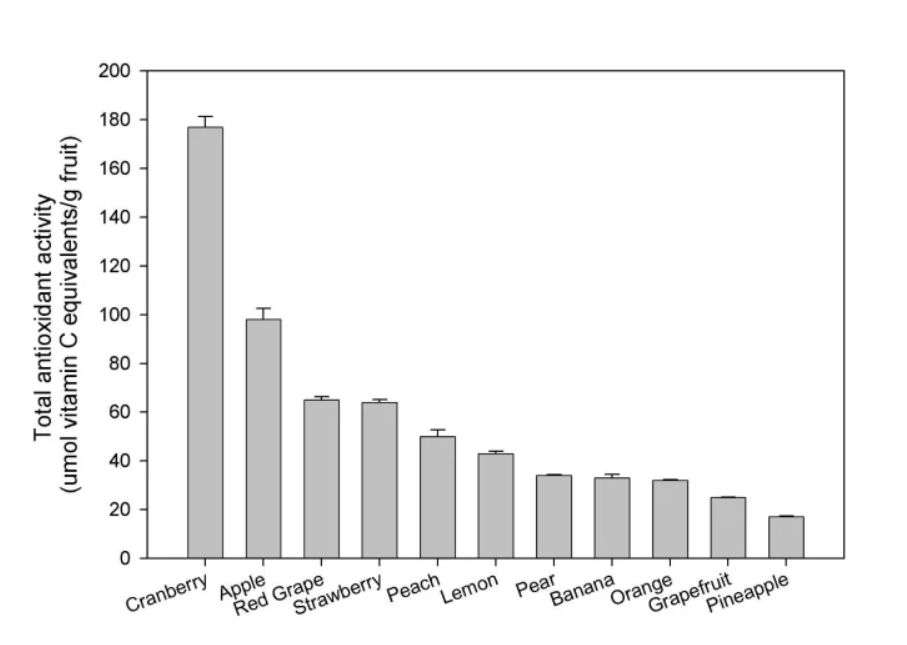
Boyer and Liu, 2004.
The amount of antioxidants that you get from your apple is impacted by the variety that you choose. Cortland and Empire varieties have the least, while Fuji apples have almost two times more antioxidants than both of these.
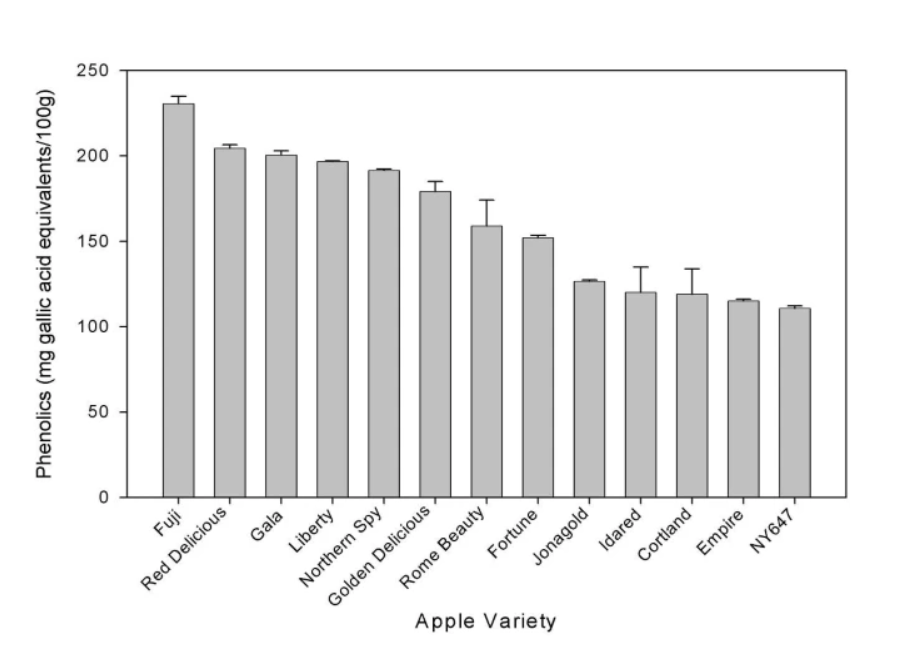
Boyer and Liu, 2004.
Cutting apples and letting them sit until they get brown reduces the number of antioxidants in them. This is because exposure to oxygen causes the antioxidants, among them vitamin C and various polyphenols, to become oxidized. In essence, the antioxidants get used up before they can enter your body and combat oxidation there.
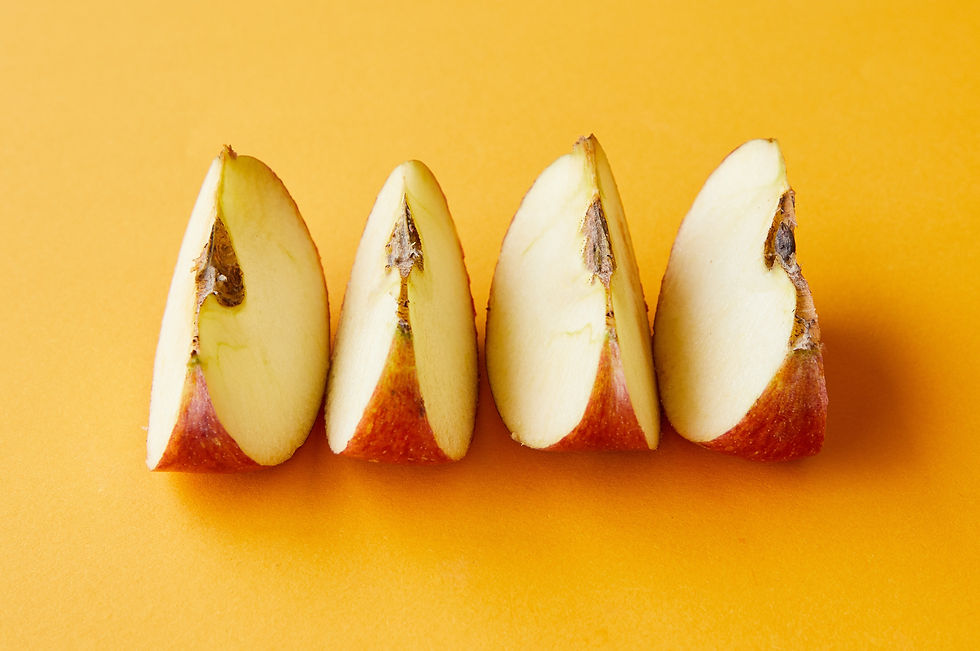
These apples are under attack - by oxygen.
Topic 2: Heart Health
Now onto the first health outcome, heart health. Apples are excellent for protecting the heart and blood vessels mainly because they improve endothelial function, which is basically a measure of how healthy our blood vessels are. This is thanks to the polyphenols in apples.
Polyphenols are substances in plant foods that are not essential vitamins or minerals, which have the power to boost our health by increasing the volume of antioxidants in our bodies, thereby helping to reduce inflammation and prevent damage from free radicals.

Vitamins and minerals cover the bases, but polyphenols take your health to another level.
Apples are rich in a class of polyphenols called flavonoids. This paper gives a great summary of how apples protect the cardiovascular system. To summarize, flavonoids improve endothelial function and reduce blood pressure. These two outcomes then lead to more blood flow to the brain and the arms and legs, and ultimately may help to reduce the risk of heart disease and stroke.

Rees et al 2018.
There is also evidence (here, and here) that consuming apples daily for 4-8 weeks can help to reduce total cholesterol, low-density lipoprotein (LDL) cholesterol, and triglycerides. Big caveat – this does not appear to be true for apple juice, which has actually been shown to make LDL cholesterol levels to go up. This implies that the benefits of apples are due in large part to their fiber content, which gets discarded in the juice-making process. So to answer the question that I posed at the beginning of the article – no, apple juice does not have all of the same benefits as apples.

It is generally better to eat your fruit than it is to drink it.
All in all, the notion that apples are good for heart health is supported by multiple research studies.
Topic 3: Type-2 Diabetes
Polyphenols in apples also help to diminish the blood sugar rise that normal happens after we eat sugar, which is found naturally in fruit. The fiber in apples helps to blunt blood sugar rise, too. A lot of work has been done to increase our understanding of how apples can help to prevent diabetes and manage its symptoms. To summarize, apples have been shown to:
Reduce inflammation
Prevent weight gain, specifically from fat
Reduce blood sugar
Promote a healthy balance of gut bacteria
Make it less likely for someone to develop type 2 diabetes
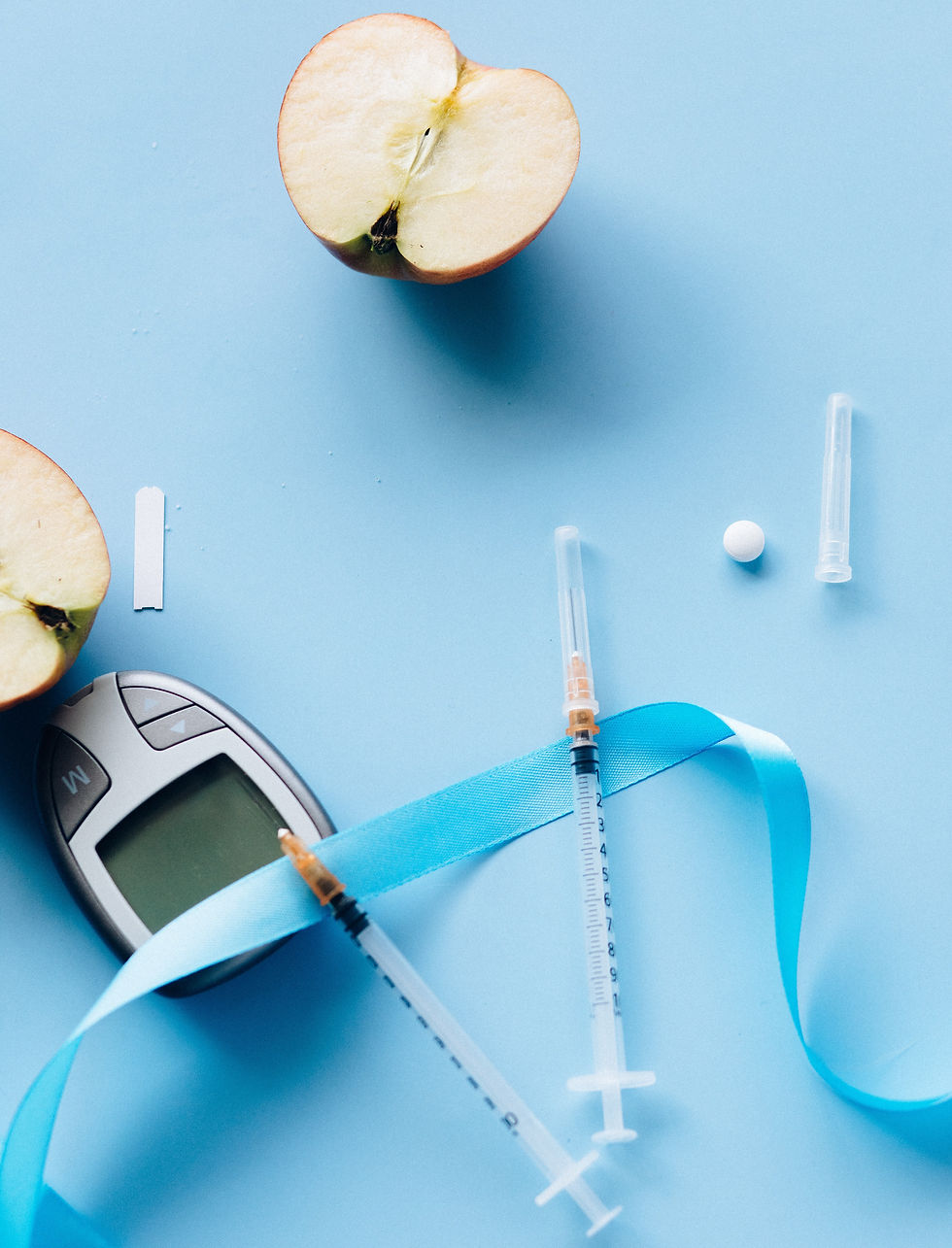
Eating apples can make it less likely that you will develop diabetes AND reduce symptoms if you already have the condition.
Topic 4: Cancer
Research evidence indicates that eating apples regularly may protect our bodies against specific types of cancer. The theory is that apples have at least two anti-cancer properties:
They induce apoptosis, or programmed cell death, of cancerous cells.
They keep cancerous cells from replicating and spreading.
While this research is promising, I want to make it clear that the research on cancer cells has primarily been done using petri dish and animal model studies. We still need more studies in humans to determine how well these benefits actually transfer over to living breathing homo sapiens.
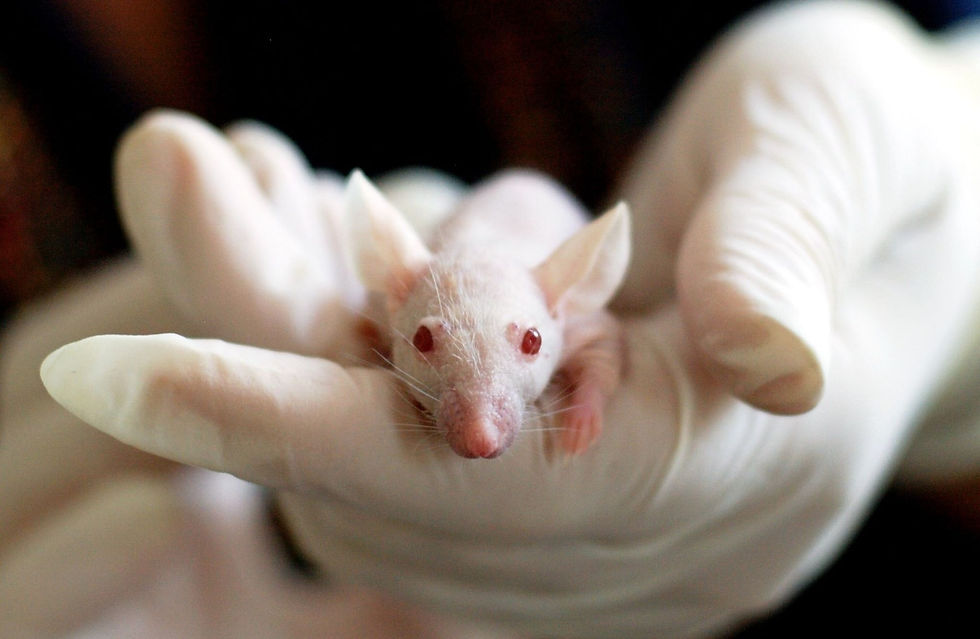
Thank you for your sacrifice.
We do have some observational data from humans though - in two case-control studies, researchers found that people who consumed more apples had a lower likelihood of developing colorectal cancer and lung cancer.
Just in case you are wondering what a case-control study is, let’s do a quick dive into this research design. This is a type of study where people are matched for all sorts of demographic characteristics like age, education level, income, and so forth, and then compared to one another in terms of one specific disease outcome. This lets us look back on each person’s life and find differences that may explain why one person developed a certain disease, while the other did not. This is type of study design was among those that were used to determine that smoking was indeed associated with lung cancer.
Apples protect us against chronic diseases, are an easy-to-transport snack, and are relatively cheap compared to some other fruits like berries. If you want to take care of your health, eating more apples will certainly be a favorable choice!
If you learned anything new or think that someone you care about could benefit from this information, share this article, and subscribe to the blog for regular updates on commonly asked nutrition questions.
Don't forget to leave a comment below!
Enjoy today!
References:
Arora, B., Sethi, S., Joshi, A., Sagar, V. R., & Sharma, R. R. (2018). Antioxidant degradation kinetics in apples. Journal of food science and technology, 55(4), 1306–1313. https://doi.org/10.1007/s13197-018-3041-1
Aune, D., Giovannucci, E., Boffetta, P., Fadnes, L. T., Keum, N., Norat, T., Greenwood, D. C., Riboli, E., Vatten, L. J., Tonstad, S. (2017). Fruit and vegetable intake and the risk of cardiovascular disease, total cancer and all-cause mortality-a systematic review and dose-response meta-analysis of prospective studies. International Journal of Epidemiology, 46(3), 1029-1056. doi: 10.1093/ije/dyw319. PMID: 28338764; PMCID: PMC5837313.
Boyer, J., Liu, R. H. (2004). Apple phytochemicals and their health benefits. Nutrition Journal, 3, 5. doi:10.1186/1475-2891-3-5
Fraga, C. G., Croft, K. D., Kennedy, D. O., Tomás-Barberán, F. A. (2019). The effects of polyphenols and other bioactives on human health. Food and Function, 10(2), 514-528. doi: 10.1039/c8fo01997e. PMID: 30746536.
Hyun, T. K., Jang, K. I. (2016). Apple as a source of dietary phytonutrients: an update on the potential health benefits of apple. EXCLI Journal, 15, 565-569. doi: 10.17179/excli2016-483. PMID: 28096786; PMCID: PMC5225682.
Jedrychowski, W., Maugeri, U. (2009). An apple a day may hold colorectal cancer at bay: recent evidence from a case-control study. Reviews on Environmental Health, 24(1), 59-74. doi: 10.1515/reveh.2009.24.1.59. PMID: 19476292.
Koutsos, A., Riccadonna, S., Ulaszewska, M. M., Franceschi, P., Trošt, K., Galvin, A., Braune, T., Fava, F., Perenzoni, D., Mattivi, F., Tuohy, K. M., Lovegrove, J. A. (2020). Two apples a day lower serum cholesterol and improve cardiometabolic biomarkers in mildly hypercholesterolemic adults: a randomized, controlled, crossover trial. American Journal of Clinical Nutrition, 111(2), 307-318. doi: 10.1093/ajcn/nqz282. PMID: 31840162; PMCID: PMC6997084.
Le Marchand, L., Murphy, S. P., Hankin, J. H., Wilkens, L. R., Kolonel, L. N. (2000). Intake of flavonoids and lung cancer. Journal of the National Cancer Institute, 92(2), 154-60. doi: 10.1093/jnci/92.2.154. PMID: 10639518.
Ravn-Haren, G., Dragsted, L. O., Buch-Andersen, T., Jensen, E. N., Jensen, R. I., Németh-Balogh, M., Paulovicsová, B., Bergström, A., Wilcks, A., Licht, T. R., Markowski, J., Bügel, S. (2013). Intake of whole apples or clear apple juice has contrasting effects on plasma lipids in healthy volunteers. European Journal of Nutrition, 52(8),1875-89. doi: 10.1007/s00394-012-0489-z.
Rees, A., Dodd, G. F., & Spencer, J. (2018). The Effects of Flavonoids on Cardiovascular Health: A Review of Human Intervention Trials and Implications for Cerebrovascular Function. Nutrients, 10(12), 1852. https://doi.org/10.3390/nu10121852
Thun, M. J. (2010). Early landmark studies of smoking and lung cancer. The Lancet, 11(12), P1200. DOI:https://doi.org/10.1016/S1470-2045(09)70401-2
USDA ERS. (2021). Apples and oranges are America’s top fruit choices. Www.ers.usda.gov. https://www.ers.usda.gov/data-products/chart-gallery/gallery/chart-detail/?chartId=58322

コメント